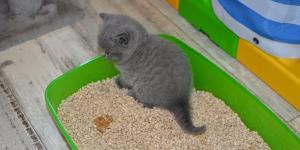Natural Remedies for Dog Bladder Stones



See files for Dogs
Discovering your dog has bladder stones can be worrying. These hard mineral deposits can cause pain, difficulty urinating, and even blockages. While professional veterinary care is essential, many pet owners are also interested in exploring complementary natural approaches. These approaches focus on promoting urinary tract health, increasing urine flow, and potentially aiding in stone dissolution.
In the following AnimalWised article, we'll discuss five natural remedies for dog bladder stones that may offer additional support, always in consultation with your veterinarian.
Increase water intake
A key strategy in preventing bladder stones in dogs is promoting increased water consumption.
When a dog drinks more, they produce more urine. This increased urine volume dilutes the concentration of minerals (such as calcium, oxalate, uric acid, and phosphates) that can precipitate and form crystals, the building blocks of bladder stones. So by reducing the saturation of these minerals in the urine, we significantly decrease the chances of stone formation.
To encourage higher water intake, consider these options:
- Soak dry food with water or broth (meat, chicken, or vegetable).
- Switch to wet food (canned or pouches).
- Consider a homemade diet, which has a naturally high moisture content.
Bladder stones are just one part of the urinary system. Discover more about another potential issue that can affect your dog's kidneys in this informative piece.

Prevent obesity
Obesity in dogs significantly increases the risk of urolithiasis (the formation of urinary stones) due to several interconnected factors.
First, obese animals often experience alterations in calcium and uric acid metabolism. These metabolic changes can elevate the concentration of these substances in the urine, increasing the likelihood of crystal formation, a key precursor to stone development.
Second, obese dogs are more susceptible to dehydration. Reduced water intake leads to less urine production, which in turn concentrates minerals in the urine, further promoting crystal aggregation and stone formation.
Third, obesity can induce a state of chronic, low-grade inflammation throughout the body. This systemic inflammation can negatively impact various organ systems, including the urinary system, contributing to urolithiasis.
Finally, obese dogs are often fed diets unbalanced in protein and minerals. These dietary imbalances can further exacerbate the risk of urolith formation.
Therefore, preventing obesity is crucial for dogs prone to or diagnosed with urolithiasis. For overweight dogs, promoting safe and gradual weight loss is essential to prevent the condition from worsening. Effective weight management involves two key strategies:
- Encourage regular daily exercise appropriate for the dog's age and physical condition.
- Provide a balanced diet with an energy content carefully adjusted to the dog's individual needs.
Explore how to manage your dog's weight for better health in this related article.
Promote exercise
As we've discussed, both being overweight and having an unbalanced diet greatly increase a dog's risk of developing urinary stones. In addition to these factors, a lack of exercise also plays a significant role. When dogs don't get enough physical activity, they urinate less frequently. This allows the minerals in their urine that can form stones to become more concentrated, making it more likely that they will clump together and create stones.
Furthermore, inactivity has a negative effect on blood flow, especially to the kidneys. Reduced blood flow makes it more difficult for the kidneys to remove waste products from the urine, creating conditions that are favorable for stone formation.
Therefore, along with maintaining a healthy weight and providing a balanced diet, regular exercise is essential for preventing bladder stones in dogs. Strenuous activity isn't necessary, even moderate, consistent exercise, such as two or three 20-minute walks each day, can significantly improve urinary health.
This type of exercise encourages more frequent urination, improves blood flow to the kidneys, and also helps prevent obesity, further highlighting the importance of considering all these factors together for effective prevention. Explore how to create an appropriate exercise routine in this companion piece.

Dietary management
Urinary stones are made of different kinds of crystals, like calcium oxalate, struvite, cystine, and urate. Knowing what kind of crystals the stones are made of is very important for treating the problem, because it tells us how to change the urine's acidity (pH) to help dissolve them. For example, to get rid of struvite stones, we need to make the urine more acidic. But to get rid of cystine stones, we need to make it less acidic (more alkaline).
Changing the urine's acidity through diet is a key part of treatment. When creating a food plan for dogs with bladder stones, we need to think about a few important things:
- Target urine acidity: like we said before, the food needs to match the type of stone. Some stones need more acidic urine, and others need less acidic urine.
- Careful food choices: it is important to choose the right foods. Changing the urine's acidity the wrong way can make the problem worse or cause other types of stones to form.
- Medicine interaction: if the dog is also taking medicine to change urine acidity, we need to be careful. Sometimes, combining special food and medicine isn't a good idea.
Because of this, it's really important to talk to your vet if your dog has bladder stones. They can help you figure out the best food plan. The wrong food can make things worse. However, here are some general tips:
- For more acidic urine (Lowering pH): these diets should have lots of animal protein, especially lean meats, and not much magnesium and calcium.
- For less acidic urine (Raising pH): these diets usually have less animal protein and more complex carbohydrates, like grains and vegetables.
We've discussed how to address bladder stones, but what can your dog's urine tell you about their overall health? Explore common urine changes and what they might mean in this related article.
Use of herbs with diuretic properties
One less commonly discussed natural approach to supporting dogs with bladder stones involves the careful use of specific herbs known for their diuretic and urinary tract support properties.
These herbs can potentially aid in increasing urine output, which helps dilute the concentration of minerals that contribute to stone formation, and may also offer some anti-inflammatory or antibacterial benefits within the urinary tract.
Some examples of herbs traditionally used for these purposes include:
- Dandelion leaf (Taraxacum officinale): dandelion leaf is a well-known diuretic, meaning it helps increase urine production. This increased urine flow can help flush out the urinary tract and reduce the concentration of minerals that form stones. It is also a source of potassium, which is important as some diuretics can deplete this mineral.
- Uva Ursi (Arctostaphylos uva-ursi): uva ursi has traditionally been used for its purported antibacterial properties in the urinary tract. It contains arbutin, which is converted in the body to hydroquinone, a compound thought to have antiseptic effects. However, uva ursi should be used cautiously and for short periods, as long-term use can potentially cause liver damage. It is also important to note that it works best in alkaline urine; therefore, its use may not be appropriate for all types of bladder stones.
- Parsley (Petroselinum crispum): parsley is another mild diuretic that can help increase urine flow. It also contains various vitamins and minerals that can contribute to overall health.
It is absolutely essential to emphasize that the use of these or any other herbs for managing bladder stones in dogs must be done under the strict supervision of a qualified veterinarian or a certified veterinary herbalist. Self-treating with herbs can be dangerous and potentially worsen the condition.
There are several ways to give herbs to dogs, common methods include:
- Mixed with food: chop fresh herbs or crush dried ones and mix them into food.
- Herbal teas: steep dried herbs in hot water, cool, and mix with food or offer separately.
- Tinctures: concentrated liquid extracts given by drops, but use pet-specific ones.
- Capsules/tablets: easy to give, but use pet-specific products and follow instructions.
- Commercial pet products: look for quality-tested powders, liquids, or treats.
We've explored natural remedies for bladder stones, but what if you notice blood in your dog's urine? Learn about this concerning symptom and its potential causes in this related article.
This article is purely informative. AnimalWised does not have the authority to prescribe any veterinary treatment or create a diagnosis. We invite you to take your pet to the veterinarian if they are suffering from any condition or pain.
If you want to read similar articles to Natural Remedies for Dog Bladder Stones, we recommend you visit our Home Remedies category.







